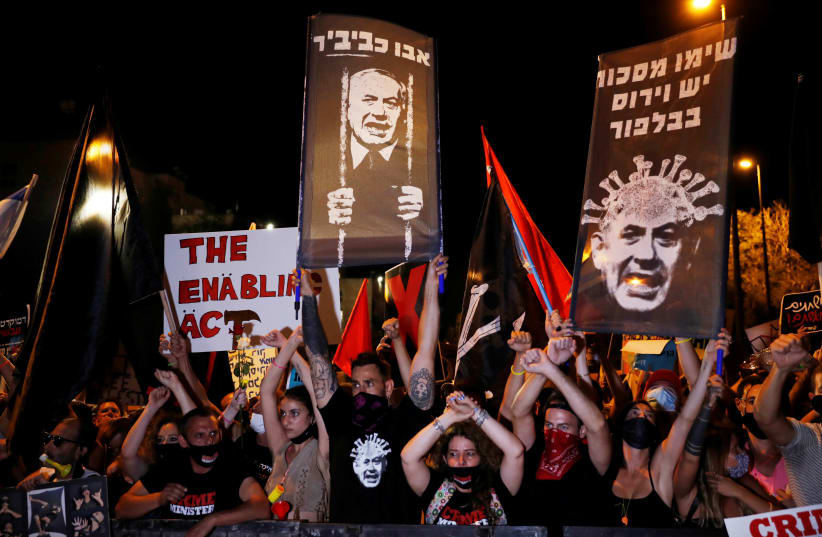Some find comparison with the Balfour protests, many camping outside the residential building in protest of then prime minister Benjamin Netanyahu.
Looking back at the protests, how do Israelis feel about what was accomplished?
According to the survey directed by Prof. Tamar Hermann and Dr. Or Anabi at the Israel Democracy Institute, the public believes the motives for the two protests were different. More than two-thirds believe the 2011 protest's purpose was to reorder socio-economic priorities, and only a minority believe its purpose was to end Benjamin Netanyahu's regime.
This, of course, is flipped when it comes to the 2020-2021 protests, where over 80% believe the intended goal was to overthrow the Netanyahu government. A minority believe it was intended to reorder socio-economic priorities.54% of participants believe the 2011 tent protest failed, while 56% believe the Balfour protests succeeded. This is probably due to the change of government that followed.In March of 2021 tens of thousands gathered pre-election to protest against Netanyahu, telling him to step down for his recent indictment. Naftali Bennett was elected after, following years of turmoil and four different election processes.
71% of Israelis believe that public protests can have an impact on policy, and 16% believe that it is okay, in certain circumstances, to break the law and disobey police to achieve their goals. A large majority believe in following police directives, however.This is important in light of the Belfour protests, where demonstrators were arrested and detained by the police on multiple occasions. In October of 2020, nearly 40 protesters were arrested after violence broke out in Tel Aviv during an anti-Netanyahu protest. Six were arrested during the "Siege on Balfour," where protesters intended to block the all the entrances to the residence.
Protesters were also arrested during the social protests in 2011. People were forcibly evicted by the Tel Aviv on grounds that they were constructed illegally and didn't have permission to be there. Over 40 people were arrested during the social protests in total.המשטרה מפנה בכוח את המפגינים מהוילום אל מעבר למחסום. אחד אחד. pic.twitter.com/OZRRqty6N5
— نير حسون Nir Hasson ניר חסון (@nirhasson) December 26, 2020
According to the poll, about 10% of the public said they took part in the protests, a high portion of them identifying as left-wing.
The data is based on a survey by the Viterbi Family Center for the Study of Public Opinion and Policy at the Israel Democracy Institute. The survey, conducted on the Internet and by telephone, interviewed 546 men and women in Hebrew and 98 in Arabic, which constitutes a representative national sample of the entire adult population in Israel aged 18 and over.
